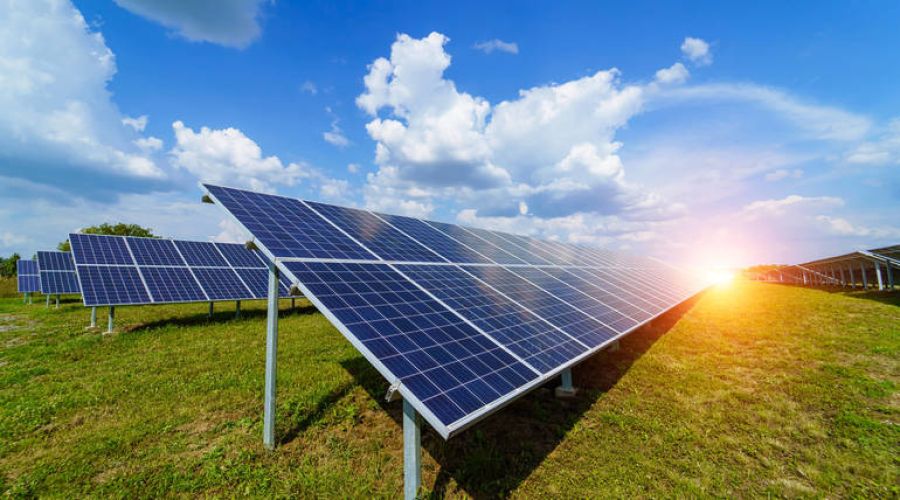The Latest Updates from New Jersey's Utilities Industry
BPU to Receive $156 Million in Federal Funds for "Solar for All Program"
EDISON - The Environmental Protection Agency has awarded the New Jersey Board of Public Utilities $156 million under the "Solar for All Program" to develop long-lasting solar programs that enable low-income and disadvantaged communities to benefit from solar power.
This award is part of EPA’s $27 billion Greenhouse Gas Reduction Fund created under the federal Inflation Reduction Act. The announcement was initially made in April through the Sixth Congressional District office; a media event was held yesterday to highlight the award and its importance to New Jersey utility customers.
EPA Regional Administrator Lisa F. Garcia and NJBPU President Christine Guhl-Sadovy stood together with elected officials, solar developers, and local leaders at a rooftop community solar site in Edison for the Sept. 5 announcement.
“Thanks to the Biden Administration’s landmark Inflation Reduction Act and Greenhouse Gas Reduction Fund, New Jersey will further its nation-leading efforts to achieve bold climate action and clean energy equity,” said New Jersey Board of Public Utilities President Christine Guhl-Sadovy. “New Jersey’s $156 million Solar for All award will result in significant emissions reductions and millions of dollars in energy bill savings, including for thousands of low-income disadvantaged community households.”
The NJBPU designed the New Jersey Solar for All to tackle the major barriers that have prevented the adoption of solar energy by low-income and disadvantaged households.
Funding through the EPA Solar for All program will support the development of residential solar, multi-family housing solar and storage, residential-serving community solar, and technical assistance and workforce development. The state expects the program to accelerate the energy transition in underserved communities by serving tens of thousands of households in low-income and disadvantaged communities.
“As the effects of the climate crisis intensify, it’s imperative that we continue to bring crucial clean energy projects online,” said State Sen. Bob Smith (D-17th Dist), chair of the Senate Environment Committee. “Through this unprecedented federal funding, New Jersey will continue to expand its growing solar industry, which remains at the core of our comprehensive climate action strategy.”
The announcement took place at a rooftop community solar project currently under construction in Edison.
The project, which is being constructed by Solar Landscape and is sited on a building owned by Prologis, received tax credits from the Inflation Reduction Act. It serves as a model for the type of projects NJBPU will undertake with its EPA Solar for All funding support. Once complete, the project will serve about 440 local households, at least half of which are low-to-moderate income.
The 2.82-megawatt capacity system will save each household over $250 per year, lowering energy bills by a total of more than $111,000 per year for subscribers.
Background
NJBPU is among 49 state-level recipients to receive a total of approximately $5.5 billion under the EPA Solar for All program. In addition, there are six awards to serve Tribes totaling over $500 million and five multistate awards totaling approximately $1 billion.
A complete list of the selected applicants can be found on EPA’s Greenhouse Gas Reduction Fund Solar for All website.
EPA estimates that the 60 Solar for All recipients will enable over 900,000 households in low-income and disadvantaged communities to deploy and benefit from distributed solar energy. This $7 billion investment will generate over $350 million in annual savings on electric bills for overburdened households.
The program will reduce 30 million metric tons of carbon dioxide equivalent emissions cumulatively, from over four gigawatts of solar energy capacity unlocked for low-income communities over five years. Solar and distributed energy resources help improve electric grid reliability and climate resilience, which is especially important in disadvantaged communities that have long been underserved.
EPA says the $7 billion investment in clean energy will generate an estimated 200,000 jobs across the country. All selected applicants intend to invest in local, clean energy workforce development programs to expand equitable pathways into family-sustaining jobs for the communities they are designed to serve.
At least 35% of selected applicants have already engaged local or national unions, demonstrating how these programs will contribute to the foundation of a clean energy economy built on strong labor standards and inclusive economic opportunity for all American communities.
The Solar for All program also advances the federal Justice40 Initiative, which set the goal that 40% of the overall benefits of certain federal climate, clean energy, affordable and sustainable housing, and other investments flow to disadvantaged communities that are marginalized by underinvestment and overburdened by pollution. All the funds awarded through the Solar for All program will be invested in low-income and disadvantaged communities.
The 60 selected applicants have committed to delivering on the three objectives of the Greenhouse Gas Reduction Fund: reducing climate and air pollution; delivering benefits to low-income and disadvantaged communities; and mobilizing financing to spur additional deployment of affordable solar energy.
Solar for All selected applicants are expanding existing low-income solar programs and launching new programs. In at least 25 states and territories nationwide, Solar for All is launching new programs where there has never been a substantial low-income solar program before. In these geographies, Solar for All selected applicants will open new markets for distributed solar by funding new programs that provide grants and low-cost financing for low-income, residential solar.
“As we transition to a clean energy economy, it is critically important that all communities reap the benefits. Community solar installations in overburdened communities improve local air quality and public health, while reducing energy costs for families and creating good local jobs,” said New Jersey Environmental Protection Commissioner Shawn M. LaTourette. “DEP is grateful to our federal partners and the Murphy Administration for our joint commitment to reducing greenhouse gas emissions, a commitment clearly demonstrated by investing in programs like Solar for All to better protect the environment we share.”
